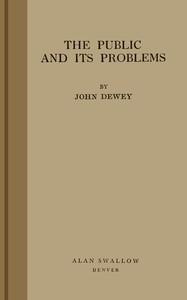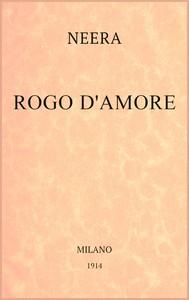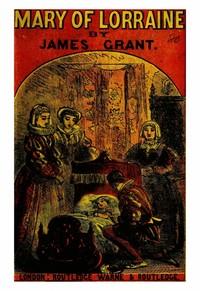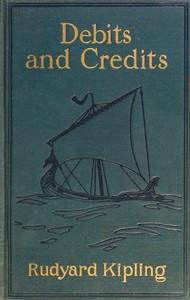|
|
Read this ebook for free! No credit card needed, absolutely nothing to pay.Words: 59047 in 9 pages
This is an ebook sharing website. You can read the uploaded ebooks for free here. No credit cards needed, nothing to pay. If you want to own a digital copy of the ebook, or want to read offline with your favorite ebook-reader, then you can choose to buy and download the ebook.

: The public and its problems by Dewey John - Democracy; Political science; State The@FreeBooksFri 07 Jul, 2023 Divergence of facts and theoretical interpretations concerning the nature of the state, 3. Practical import of theories, 5. Theories in terms of causal origin, 9. Theory in terms of perceived consequences, 12. Distinction of private and public substituted for that of individual and social, 13. The influence of association, 22. Plurality of associations, 26. Criterion of the public, 27. Function of the state, 28. The state as an experimental problem, 32. Summary, 34. Public and state, 38. Geographical extent, 39. Multiplicity of states, 43. Spread of consequences, 47. Law is not command, 53. Law and reasonableness, 55. The public and long-established habits of action, 57. Fear of the new, 59. Irreparable consequences, 62. Variation of state-functions according to circumstances of time and place, 65. State and government, 66. State and society, 69. The pluralistic theory, 73. Private and representative r?les of officials, 76. Selection of rulers by irrelevant methods, 78. The problem of control of officials, 82. Meanings of democracy, 83. Fallacy as to origin of democratic government, 84. Influence of non-political factors, 85. The origin of "individualism," 86. Influence of the new industry; the theory of "natural" economic laws, 90. James Mill's philosophy of democratic government, 93. Criticism of "individualism," 95. Criticism of antithesis of natural and artificial, 102. Wants and aims as functions of social life, 104. Persistence of pre-industrial institutions, 108. Final problem, 109. Democracy as idea and as governmental behavior, 143. Problem of the Great Community, 147. Meaning of the democratic ideal, 148. Democracy and community life, 149. Community and associated activity, 151. Communication and the community, 152. Intellectual conditions of the Great Community, 155. Habit and intelligence, 158. Science and knowledge, 163. Limitations upon social inquiry, 166. Isolation of social inquiry, 171. Pure and applied science, 172. Communication and public opinion, 173. Limitations of distribution of knowledge, 176. Communication as art, 183. Antithesis between individual and social as obstruction to method, 186. Meaning of individual, 185. Where opposition lies, 191. Meaning of absolutistic logic, 194. Illustration from doctrine of "evolution," 196. From psychology, 197. Difference of human and physical science, 199. Experimental inquiry as alternative, 202. Method, and government by experts, 203. Democracy and education by discussion, 206. The level of intelligence, 210. The necessity of local community life, 211. Problem of restoration, 213. Tendencies making for re?stablishment, 215. Connection of this problem with the problem of political intelligence, 217. INDEX 221 THE PUBLIC AND ITS PROBLEMS SEARCH FOR THE PUBLIC If one wishes to realize the distance which may lie between "facts" and the meaning of facts, let one go to the field of social discussion. Many persons seem to suppose that facts carry their meaning along with themselves on their face. Accumulate enough of them, and their interpretation stares out at you. The development of physical science is thought to confirm the idea. But the power of physical facts to coerce belief does not reside in the bare phenomena. It proceeds from method, from the technique of research and calculation. No one is ever forced by just the collection of facts to accept a particular theory of their meaning, so long as one retains intact some other doctrine by which he can marshal them. Only when the facts are allowed free play for the suggestion of new points of view is any significant conversion of conviction as to meaning possible. Take away from physical science its laboratory apparatus and its mathematical technique, and the human imagination might run wild in its theories of interpretation even if we suppose the brute facts to remain the same. In any event, social philosophy exhibits an immense gap between facts and doctrines. Compare, for example, the facts of politics with the theories which are extant regarding the nature of the state. If inquirers confine themselves to observed phenomena, the behavior of kings, presidents, legislators, judges, sheriffs, assessors and all other public officials, surely a reasonable consensus is not difficult to attain. Contrast with this agreement the differences which exist as to the basis, nature, functions and justification of the state, and note the seemingly hopeless disagreement. If one asks not for an enumeration of facts, but for a definition of the state, one is plunged into controversy, into a medley of contradictory clamors. According to one tradition, which claims to derive from Aristotle, the state is associated and harmonized life lifted to its highest potency; the state is at once the keystone of the social arch and is the arch in its wholeness. According to another view, it is just one of many social institutions, having a narrow but important function, that of arbiter in the conflict of other social units. Every group springs out of and realizes a positive human interest; the church, religious values; guilds, unions and corporations material economic interests, and so on. The state, however, has no concern of its own; its purpose is formal, like that of the leader of the orchestra who plays no instrument and makes no music, but who serves to keep other players who do produce music in unison with one another. Still a third view has it that the state is organized oppression, at once a social excrescence, a parasite and a tyrant. A fourth is that it is an instrument more or less clumsy for keeping individuals from quarreling too much with one another. Confusion grows when we enter subdivisions of these different views and the grounds offered for them. In one philosophy, the state is the apex and completion of human association, and manifests the highest realization of all distinctively human capacities. The view had a certain pertinency when it was first formulated. It developed in an antique city-state, where to be fully a free man and to be a citizen participating in the drama, the sports, the religion and the government of the community were equivalent affairs. But the view persists and is applied to the state of to-day. Another view co?rdinates the state with the church as the secular arm of Deity maintaining outward order and decorum among men. A modern theory idealizes the state and its activities by borrowing the conceptions of reason and will, magnifying them till the state appears as the objectified manifestation of a will and reason which far transcend the desires and purposes which can be found among individuals or assemblages of individuals. The prestige of the mathematical and physical sciences is great, and properly so. But the difference between facts which are what they are independent of human desire and endeavor and facts which are to some extent what they are because of human interest and purpose, and which alter with alteration in the latter, cannot be got rid of by any methodology. The more sincerely we appeal to facts, the greater is the importance of the distinction between facts which condition human activity and facts which are conditioned by human activity. In the degree which we ignore this difference, social science becomes pseudo-science. Jeffersonian and Hamiltonian political ideas are not merely theories dwelling in the human mind remote from facts of American political behavior. They are expressions of chosen phases and factors among those facts, but they are also something more: namely, forces which have shaped those facts and which are still contending to shape them in the future this way and that. There is more than a speculative difference between a theory of the state which regards it as an instrument in protecting individuals in the rights they already have, and one which conceives its function to be the effecting of a more equitable distribution of rights among individuals. For the theories are held and applied by legislators in congress and by judges on the bench and make a difference in the subsequent facts themselves. Free books android app tbrJar TBR JAR Read Free books online gutenberg More posts by @FreeBooks |
Terms of Use Stock Market News! © gutenberg.org.in2025 All Rights reserved.






